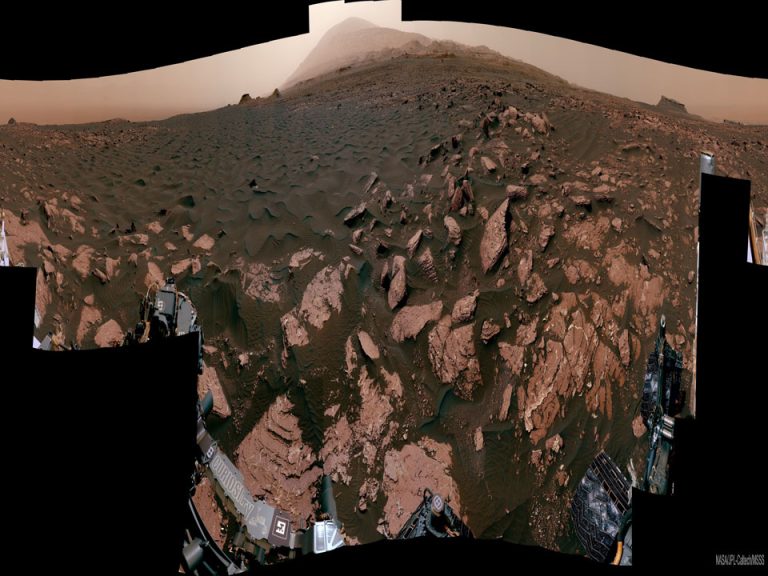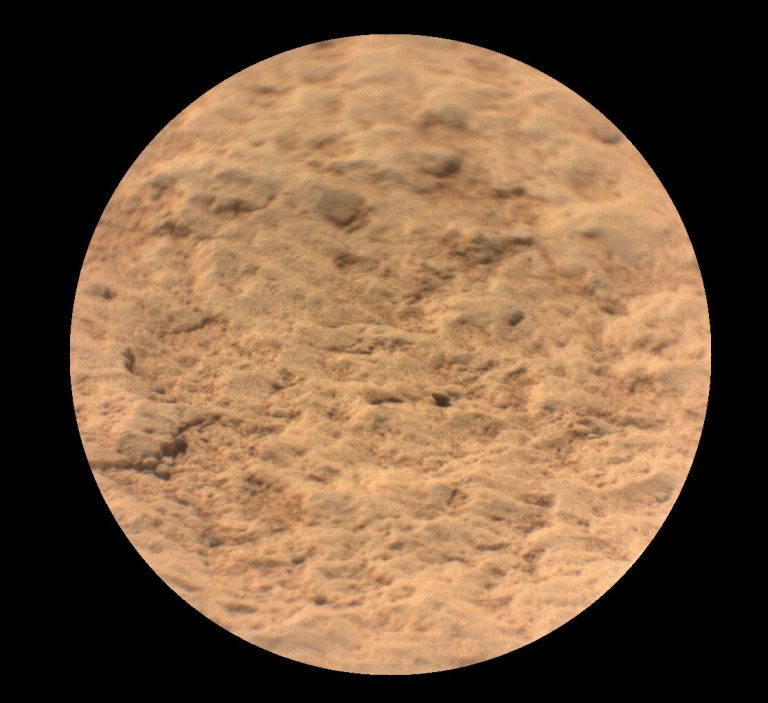2024年9月4日
NGC 6995: The Bat Nebula
Image Credit & Copyright: Mike Taivalmaa
Explanation: Can you see the bat? It haunts this cosmic close-up of the eastern Veil Nebula. The Veil Nebula itself is a large supernova remnant, the expanding debris cloud from the death explosion of a massive star. While the Veil is roughly circular in shape and covers nearly 3 degrees on the sky toward the constellation of the Swan (Cygnus), NGC 6995, known informally as the Bat Nebula, spans only 1/2 degree, about the apparent size of the Moon. That translates to 12 light-years at the Veil’s estimated distance, a reassuring 1,400 light-years from planet Earth. In the composite of image data recorded through narrow band filters, emission from hydrogen atoms in the remnant is shown in red with strong emission from oxygen atoms shown in hues of blue. Of course, in the western part of the Veil lies another seasonal apparition: the Witch’s Broom Nebula.
Teachers & Students: Ideas for using APOD in the classroom
Tomorrow’s picture: friendly spiral
NGC 6995: 蝙蝠星云
影像提供与版权: Mike Taivalmaa
说明: 你能认出蝙蝠吗?它就出没在这幅东面纱星云的特写影像里。面纱星云则是个大型的超新星遗迹,是大质量恒星发生死亡爆炸时,所抛出的扩张碎片云。几近圆环状的面纱星云,涵盖天鹅座方向约3度的天空,不过编录号为NGC 6995的蝙蝠星云,跨度只有半度,和满月的视大小相当。以面纱星云离地球1,400光年的距离来换算,这幅影像涵盖此星云约12光年的区域。在这幅由窄波段滤镜影像数据组合而成的影像里,遗迹内氢原子发出的辐射以红色来呈现,而氧原子的明亮辐射线则以蓝色渐层来显示。在面纱星云的西侧,还有另一个会让人联想起万圣节的女巫帚星云。
教师和学生: 在课堂上使用APOD的想法
明日的图片: friendly spiral








One Comment